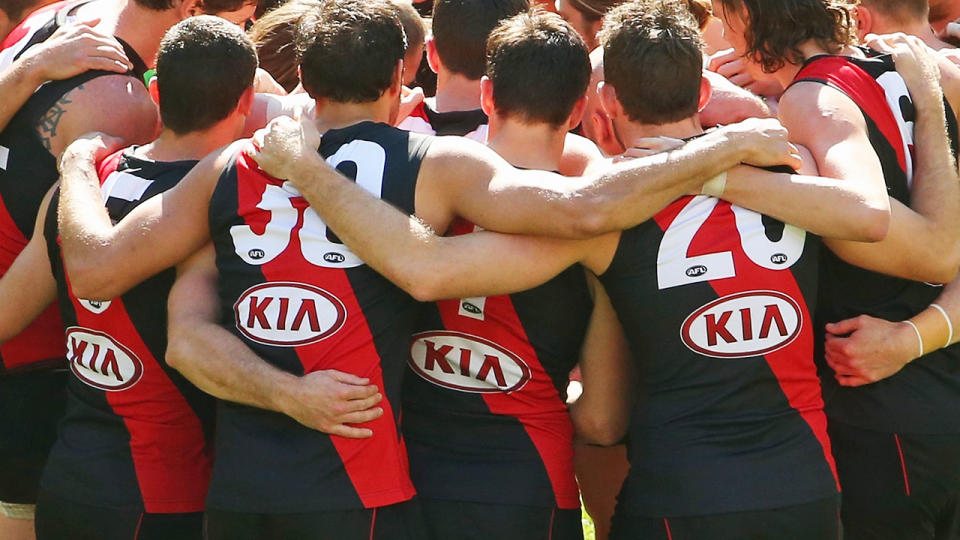'Evidence of a stitch-up': Shock new twist in Essendon supplements scandal
The drug administered to Essendon players that led to their suspension in 2016 was only listed as a banned substance several months after the injections were stopped.
A total of 34 Bombers players were banned for 12 months after a Court of Arbitration for Sport ruled the players were injected several times with the banned substance Thymosin Beta-4.
But the drug was only deemed to be logged as prohibitive on February 4, 2013 - months after the club had stopped injecting the players.
The Herald Sun obtained the information under Freedom of Information laws.
"An ASADA official ran a check on the public site for "research" at 10.34am and no flag was generated for Thymosin Beta-4," the newspaper report said.

"Another check on Thymosin Beta-4 just over two hours later at 12.59pm by an ASADA staffer listed it as 'banned in sport'.
"The status update came on the same day AFL boss Andrew Demetriou called Essendon chairman David Evans about a secret investigation into the club's supplements program, prompting the Bombers to 'self-report' to ASADA."
Scientist Bob O'Dea said: "The evidence of a stitch-up is compelling".
The players' defence team did not know the timing of the logging of the ban when they were found guilty in January 2016, the publication added.
Questions have also been raised about the update's timing, with suggestions it was an attempt by some staff to shore up evidence after the fact.

ASADA hits back
However a spokesperson from ASADA told the Herald Sun the fact a substance wasn’t listed in the ‘Check Your Substance’ tool didn’t necessarily mean it was legal.
Former ASADA boss Richard Ings echoed that sentiment, saying the Court of Arbitration for Sport is only concerned with what WADA has banned, not ASADA.
“None of which impacts on the decision reached by CAS,” Ings wrote on Twitter in response to the Herald Sun story.
“WADA determine what’s banned. Not ASADA.
“And no one argues successfully that TB-4 is not banned.
“EFC34 were well represented at both hearing. They lost.”
None of which impacts on the decision reached by CAS.
WADA determine what’s banned. Not ASADA.
And no one argues successfully that TB-4 is not banned.
EFC34 were well represented at both hearing. They lost— Richard Ings (@ringsau) October 15, 2019
The supplements saga led to a number of senior Essendon figures leaving the club, including chief executive Ian Robson, chairman David Evans and his replacement Paul Little.
Then-coach James Hird was banned by the AFL for 12 months in 2013 when the AFL fined the club $2 million and banned the Bombers from competing in that year's finals series.
Hird returned after the conclusion of his ban but later resigned.
Sports scientist Stephen Dank, who oversaw the supplements program, was in 2015 found guilty by an AFL Tribunal of trafficking in a number of illicit supplements.
The tribunal banned Dank from any association with the AFL for life.
with AAP
